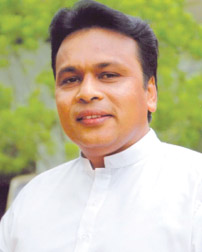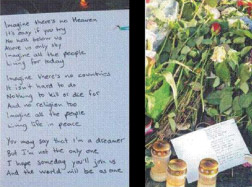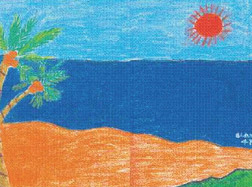Education, democracy and human rights
Speech delivered in Parliament by MP
Mohanlal Grero on the occasion of the debate on education
The Chinese Philosopher, Confucius, once said, “If your strategy for
the future is for one year then cultivate paddy. If your strategy is for
ten years then grow trees. If your future strategy is for 100 years then
what you must invest in is education”.
Therefore, in a budget for a country’s future economic improvement
and development, the most important and long term investment is the
expenditure on education.
 |
|
Mohanlal
Grero, MP |
In our country, there are many problems confronting the field of
education. The first are the inequities that have crept into the school
education system without our knowledge. The primary reason for the free
education reforms proposed by the C. W. W. Kannangara were the
inequities, largely based on religion, that then existed in Sri Lanka.
He believed that these inequities could be eliminated through the
establishment of Central Schools. But the emergence of different types
of schools based on other values has reduced that proposal to an
unrealized dream. This problem has arisen due to the lack of a National
Policy in regard to school categorisation. Described below are some of
these schools:
Primary schools, Junior schools, Secondary schools, Central schools,
National schools, Regional schools, Private schools, International
schools, Semi- government schools, Muslim schools, Catholic schools,
Tamil schools, Estate schools, Navodya schools, Isuru schools, boys
schools, Girls schools, Mixed schools, Pirivena schools, 1A schools, 1B
schools, 1C schools and so on.
National policy
The most important factor in a school are the teachers. Due to the
lack of a firm National Policy in regard to the recruitment of teachers,
teacher suitability criteria, teacher training and counselling, teacher
evaluation, salary reforms, grading and promotions, and teacher conduct
codes, the changes and adjustments implemented from time to time through
circulars has plunged the issues faced by teachers in to total
confusion. Some of these issues end up in Court. Due to the lack of
planning in teacher mobilisation, the funds allocated from the Education
Budget for development is mostly frittered away ineffectively and
unproductively. As a result, its core benefits do not reach the sons and
daughters of Sri Lanka.
The backbone of the school is the Principal. Presently, there is no
strategy, unlike in the past, for the development of great Principals
with eminent character and virtue. In our childhood, our hero was the
Principal. We felt driven to believe in him and to emulate him. They
were successful in starting from ground level and developing great
schools. But, do we now have a National Policy to support Principals, to
strengthen them and thereby to improve the management of schools and
make them productive?
Corrupt activities
On the other hand, how appalling is the decline of the provision of
basic facilities and the maintenance of schools? In some schools, there
is no proper standard even for the use of classrooms. Even the black
board, or the piece of chalk is not in the right place. There are no
toilets or drinking water facilities. Is it then necessary, even to talk
about playgrounds, assembly halls, swimming pools, teacher restrooms,
libraries, language labs, computer rooms, science laboratories and
activity rooms? It is therefore essential to establish a National Policy
on minimum standards for the provision of basic facilities and
development of schools and to implement them rigidly. If this is not
done, the funds allocated for education from the budget will be
frittered away through lack of proper systems and by corrupt activities.
We do not have a policy in our general education stream for the
development of our children with physical and emotional problems and
those with learning difficulties. It has also become extremely difficult
to provide education for children at different age levels, who have been
displaced due to various reasons and who have not received even a
primary education.
Recently, a newspaper report said that 15 percent of the population
of Sri Lanka was suffering from some form of mental illness. It has not
been possible to establish robust psychotherapy programmes in schools to
arrest this situation by addressing the psychological problems of
children. All the children in the country cannot become doctors and
engineers. What are the policies in place, to recognize the natural
talents and inclinations of a child and to direct him towards the
appropriate profession, ensuring both the dignity of the individual and
the profession, as well as to establish a job placement scheme useful to
the country and to provide young students with career guidance advice?
Greatest challenge
Do we also have a mechanism to solve the endless questions regarding
static subject identification, school uniforms, text books and
examinations?
 |
|
Picture 1 |
 |
|
Picture 2 |
What have we done to mould the futures of the approximately 300,000
students who come out of the school system at the end of the GCE
Ordinary Level and Advanced Level Examinations, which is the greatest
challenge faced by our education system?
Is it not this system of education which has produced a criminalized
society which is totally selfish in outlook, which does not value common
property despite boasts of country, nation and religion and which
worships money and power; and that which promotes bribery, corruption,
thuggery, narcotics, alcohol, cigarette smoking, factionalism and
thievery?
Today, we speak of the erosion of democracy and the loss of human
rights. But isn’t it the inadequacy of education system that gave rise
to all these problems in our present society?
What has this system of education contributed towards converting this
Sri Lankan society, which has been divided by language, religious,
caste, ethnic and sexual strife, to a peace loving society which is
compassionate, which believes that discharging responsibilities is
greater than fighting for one’s rights and which believes in the
development of other people?
Religious issues
In July this year I had the opportunity of touring Norway. A few days
prior to my visit a young Norwegian had killed about a hundred young
people on the basis of some religious issues. All over the country, at
intersections and roundabouts, people had expressed their sorrow by
laying flowers and lighting candles. I saw a poem written by the father
of a dead child which had been placed amongst the flowers and the
candles and after reading it I photographed it.
What that poem says is to imagine a peaceful world which does not
have either heaven or hell, which has no religions and country
divisions, and where there is no reason for people to kill each other.
Looking at this poem objectively I thought to myself how wrong it
was. Is there an existence for mankind without different languages,
different races and the diversity contributed by differentiated
ethnicities, sexes and religions? Is it not this diversity which makes
the world more attractive and desirable? Should we not, through
education, inculcate in the child the ability to appreciate the beauty
of this diversity and whilst loving one’s language, religion and
country, to equally respect the love others have, for their language,
religion and country? Should we not train the child to understand and
accept this differentiation and to live with it comfortably? Did we not
fight a 30 year war because we did not understand these realities?
Great difficulty
One morning I listened to a speech made by a Grade IV student at a
school assembly. He had brought a box of colour pencils and a painting.
Showing the box of coloured pencils he said,
“When my father first bought this pencil box I was sad. How varied
are these colours? When I was very small I got into great difficulty by
trying to do a drawing with these pencils. I was very weak in my drawing
class. Therefore, a box with many coloured pencils was a big problem for
me. I thought how simple it would be if the whole world was one colour.
Now I am in Grade IV and the new art teacher is very good. She taught
me how to draw the sea shore.
Look at this drawing (See picture 2). Light blue for the sky, dark
blue for the sea. Red for the setting sun, Green for the leaves of the
trees and orange for the beach bathed in sunlight. That is how the Art
Teacher explained it. See what meaning there is in it. See how beautiful
it is. Now I understand what a good thing it is to have so many colours.
When they are applied in the right place and in the right order it is
beautiful. How boring it would be if the world was only one colour. Now
I love my drawing class.”
I think it is necessary to convey this Fourth Grade child’s story to
the political leaders of our Sinhala, Tamil and Muslim parties and the
people of this country, who are killing each other because of their
differences.
Education system
Despite the differences between nations, religions, languages and
parties, isn’t this diversity beautiful? It is like the differences
between colours. The only manner in which a country or a society can
become attractive is by channelling this diversity, by harnessing its
strength, by using these differences intelligently and creating a
picture which has meaning.
Haven’t we confused these colours and defaced this drawing? When will
we be able to move to Grade IV? When will our education take the
necessary steps to achieve this?
In our Sri Lankan society the root cause for 90 percent of our
problems and other ills lies in the inadequacies of our education
system. It is difficult for us to rehabilitate an adult society which
has become hardened by deep seated prejudices. However, I believe that
the elixir that we can give our children and to build a beautiful Sri
Lanka is through education.
I was born in 1956 to a middle class family living in the harsh
Colombo earth. It was due to free education that I was able to obtain an
education in schools like Royal and Ananda. It were the godlike teachers
who breathed life in to me and from my childhood I have beheld my
teachers as shepherds who showed us the way.
Parliamentary elections
I have been deeply moved by a teacher who has explained something to
me clearly. From my childhood I have firmly believed that there was no
life for me except as a teacher. Although I was selected within the
first four in the 1974 GCE A Level examination and entered the
Engineering faculty to please my father, my main ambition was to become
a teacher.
It was the former Minister of Education, Dr. Karunasena Kodituwakku,
who proposed that the UNP gives me nomination for the 2004 Parliamentary
Elections. It was the present Education Minister Bandula Gunawardena,
who conveyed the message to me and encouraged me. By that time I had
acquired a fair understanding of education and having made it my life, I
had also prepared a plan for a National Policy, designed to resolve the
burning educational problems of the day.
I entered politics for the sole purpose of resolving the problems in
education and not to seek either political power, wealth or fame. It was
not to empower myself but to empower the youth of the country, your sons
and daughters.
Special Education committee
During the 2005 Presidential election, the UNP formulated a national
education policy and Ranil Wickramasinghe handed it over to me through
Bandula Gunawardena.
In discussion with accomplished educationists like Dr. Lakshman
Jayatilleke and Dr. Roland Abeyapala, I formulated National Education
policy and handed it over to Ranil Wickramasinghe. However, to my great
regret, the UNP manifesto for the 2005 Presidential election did not
include any of my proposals. After the UPFA came in to power in 2005, I
handed over the Education Policy document to Susil Premajayantha, then
Minister of Education, at his home, in the hope that the country would
derive some benefit from it.
In 2005, after I was elected to Parliament, although the disputes in
the meeting chamber contributed to much stress, I found solace in the
Special Education committee room. To me the greatest value and meaning
in attending parliament was my participation in the Special Education
Committee. I have attended all 25 of its meetings.
The focus of those meetings was the report incorporating the
proposals made by educationist, Dr. P.B. Gunawardena. Although delivered
differently, most of those proposals were close to my heart. It has been
possible to collate about 700 proposals submitted by the committees,
associations, professionals and educationists participating in those
meetings. I wish to submit a few of the more important and primary
proposals.
1. That it is necessary to formulate a completely new educational
statute, after 1939 and through that to set in place a stable National
Education Policy.
2. To gradually eliminate the inequalities currently existing between
schools and to conduct only Primary and Secondary schools.
3. To develop 1000 secondary schools and 5,000 associate schools.
4. To completely do away with the Grade Five scholarships.
5. Establish a system for English teaching and Computer Skills training.
6. To design a strategy for assimilating children who drop out after the
Ordinary Level and /or Advanced Level.
7. A television channel dedicated to education.
I felt that it was possible to create this revolution in education
and it gave me fresh hope, to draw a picture of a beautiful , new Sri
Lanka; a country in which all parliamentarians could leave aside
differences and unite as fathers and mothers.
This budget has slightly increased the capital expenditure for
educational development. Arrangements have been made to obtaining USD
600 Mn. as aid. I have come to believe that instead of cursing the
darkness, we must now light a lamp.
Therefore, I decided to support the government in this budget, to
work with the government and to contribute to the success of this
education programme, with my knowledge, experience and skills.
In making this decision my mentor in politics, the Hon. Leader of the
Opposition, Ranil Wickramasinghe, comes to mind. I think of the senior
members of the party who extended to me much kindness and care. I also
recall Thalatha Athukorale, who consoled me as a sister would, when I
was in depression after being taken to task by our leader.
I have considered my principles and my sense of self respect. I have
also wondered whether I am acting in conflict with the very fundamentals
I have taught to thousands of children. I have also considered the
criticisms that will be levelled against me by the press who will
analyse my action, and the insults that I will have to endure.
I placed in one side of the scale my sense of self-worth, my
principles, the insults and criticisms I will have to endure and the
consideration extended to me by the members of the opposition including
its leader. On the other side of the scale I placed the four million
children who are looking to us for knowledge, guidance, learning and a
future.
Honourable Speaker, the expectations of those children are a hundred
fold heavier.
Therefore, I decided that on behalf of the children of this country
and in consideration of the deep desire and concern within me for
education, that I will, without fear or doubts, do what is necessary for
education in this country.
I offer my pledge to all those in the opposition and the government,
that I will commit myself totally to making a success of the education
development plans , without consideration of party divisions or the
expectation of any rewards or privileges.
|



